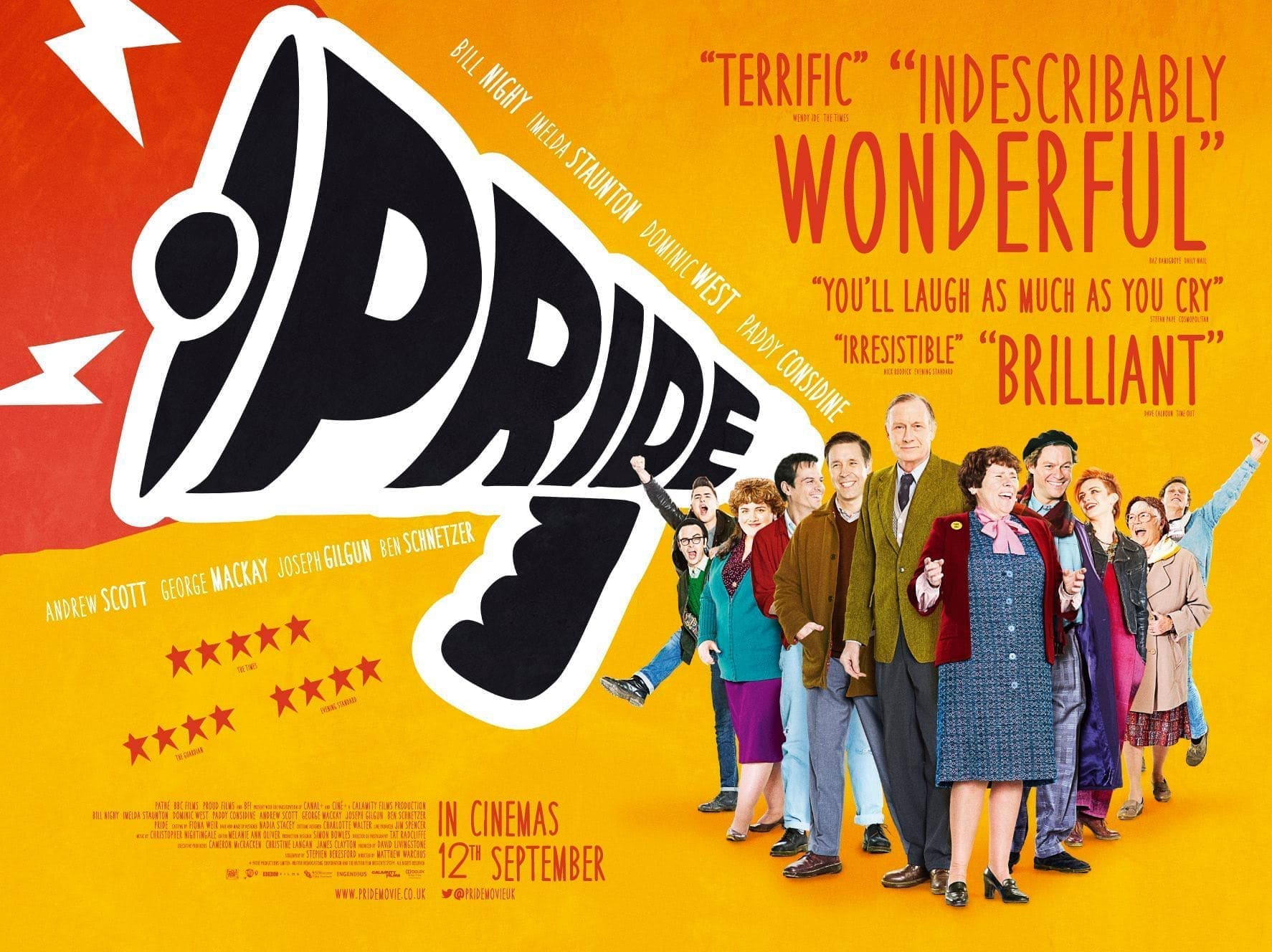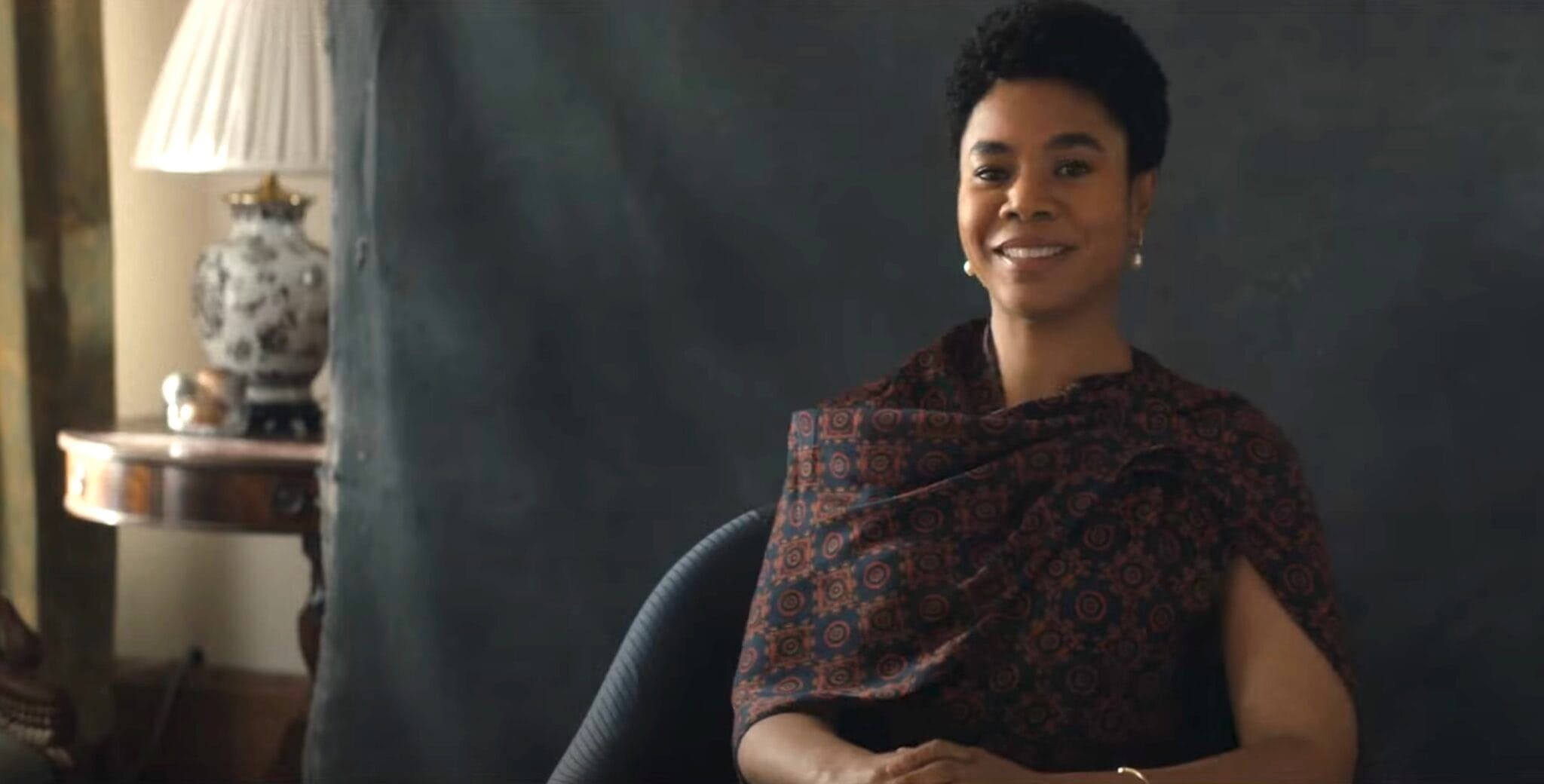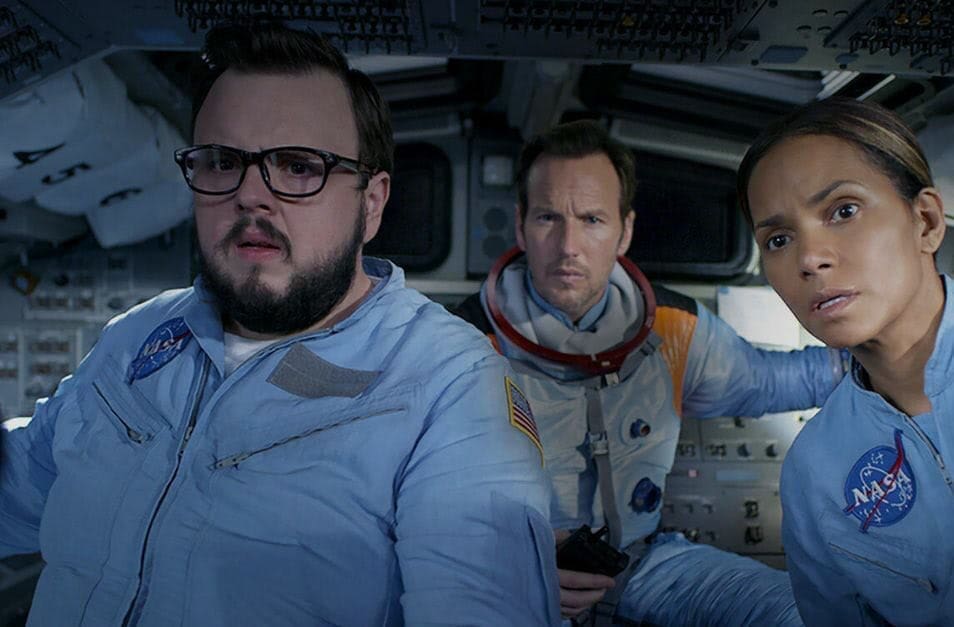Significant historical moments happen more often than we can keep up with and the media, social or otherwise, does its best to keep us up to speed. Revolutions, strikes, and protests are the result of a loud and disenfranchised group trying to keep their voice in the discussion to make society a better place. Better wages, better working conditions, better representation in general, and when it comes down to it the biggest asset anyone can hope to acquire in this organized, civil disobedience is respect.
In the film Pride, directed by Matthew Warchus, the National Union of Mineworkers in Great Britain went on strike in 1984 to protest the closure and privatization of several pits in England. Margaret Thatcher, prime minister at the time, became their enemy and thus the nation and the media were against them from the start. Enter Mark(Ben Schnetzer) who, while campaigning for the rights of gays and lesbians, decides to throw his support, and eventually the support of almost the entire gay community behind the mine workers’ cause. The plight of the working man being trampled by the government is a universal image that translates well into Mark’s plan to bring the rights of gays and lesbians to the forefront, but money speaks louder than words. If he is to implement his plan, he has to convince one mining town, represented by the union, they mean to support them and their families with food and funds. So he brings his team with him to a village in South Wales to have a meet and greet. The predictable cold shoulder is present at first, but they do have some assistance from the town council led by Hefina(Imelda Staunton), Dai(Paddy Considine), and the quiet, but brilliant Bill Nighy as Cliff. One member of the council has no interest in cooperating with homosexuals and makes sure her opinion is known. Eventually though the village is on board, thanks to the help of an energetic activist named Jonathan, played by Dominic West. His entertaining personality wins over the apprehensive crowd in proper celebratory fashion.
The movie never dwells on the dark moments that plague the gay community, from violent assault to the introduction of AIDS, but it doesn’t shy away from those issues either. They affect the choices our characters make and this fuels them with the energy and motivation to seize the moment. It’s no wonder the determination in their resolve also motivates the village to stay upbeat in the face of overwhelming adversity. A young 20-year-old newcomer to the gay activism scene by the name of Joe(George Mackay) is inspired to help spread the message of solidarity for his friends and the miners, even though his own family knows nothing of his involvement or his personal orientation.
While the film does cover several serious topics, it’s surprisingly cheerful and funny; which is very effective in making this an entertaining and informative piece of work. The old ladies of the village spending a night out in London at the local gay bars is hilarious; as is the exchanges between two miners trying to receive dancing lessons from Jonathan in the hopes of wooing the ladies. Dominic West is amazing in his role and really breathes life into his character on and off the dance floor.
Imelda Staunton is terrific as the supportive councilwoman trying to get her fellow villagers to accept the help of people who dug deep into their pockets to keep the town afloat. She also provides great energy in an already uplifting movie which boasts a nice 80’s soundtrack as well. Her scenes with Bill Nighy are a highlight.
I will say it became sometimes difficult to understand some of the Welsh dialogue, but it wasn’t a distraction. If anything it just makes me want to watch it again to see what jokes I may have missed. Utilizing humor throughout the movie is a clever way of disguising the tension present during the actual strike that took place 30 years ago. Just because they were enduring major sacrifices doesn’t mean they couldn’t still enjoy a pint, sing songs to honor those that fought for their rights in the past, and embrace a renewed tolerance that needn’t have been challenged if people simply sat down and talked like civil human beings.
Pride is a great example of a moment in time that is probably well-known in England, but very few Americans I’d wager have ever heard before. The mine workers union and the gay and lesbian community was not a smooth marriage, but it was an important one. Speaking out for one group meant both groups had a much louder voice that couldn’t be ignored. The successes and failures of their mutual cooperation paled in comparison to the gesture itself. If anything the act of trying to make a difference dissolved animosity among all British faster than any speech ever could have. Solidarity above all else. United to the end. I certainly enjoyed how it all turns out, with the exception of a few tragedies.
I recommend this to anyone who enjoys learning about a present-day topic from the perspective of an actual event in history. Also see it for the amazing performances from Dominic West, Imelda Staunton, Bill Nighy, and many others. It’s a clever, funny, well-paced movie that keeps you engaged from scene to scene and the awesome 80’s music isn’t half bad either. Respect for your fellow-man, and woman, is something we all should strive for. It starts with understanding and that only comes from talking and unbiased sincerity. Everybody deserves that chance at least.
PRIDE:[usr 4.5]
About PRIDE
Synopsis: U.K. gay activists work to help miners during their lengthy strike of the National Union of Mineworkers in the summer of 1984.
Directors: Matthew Warchus
Writers: Stephen Beresford
Stars: Bill Nighy, Imelda Staunton, Dominic West, Ben Schnetzer, Abram Rooney
Rated: R
Runtime: 120 Minutes
Opens: October 10th, 2014





























